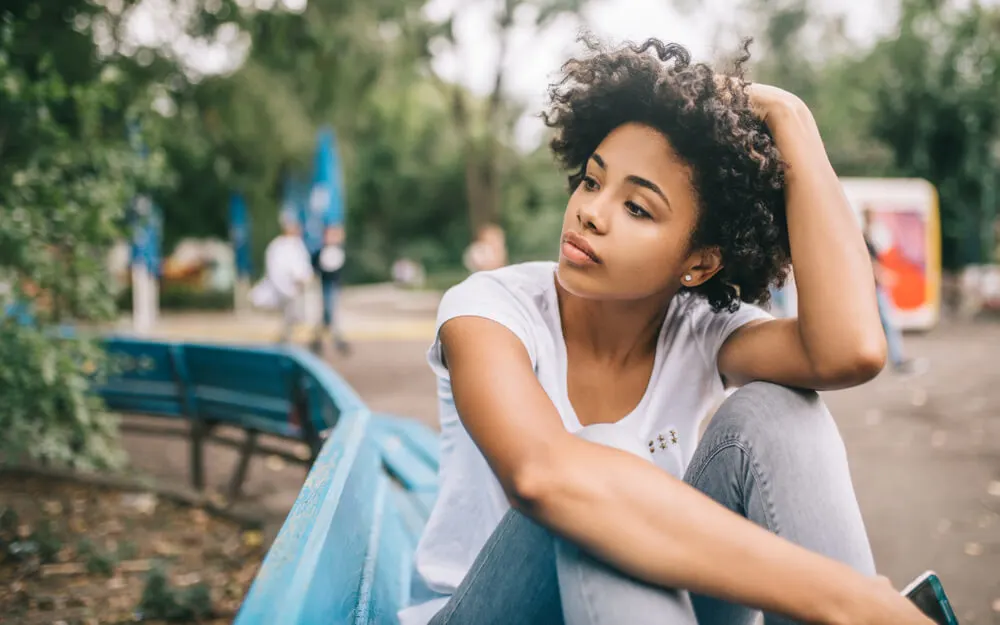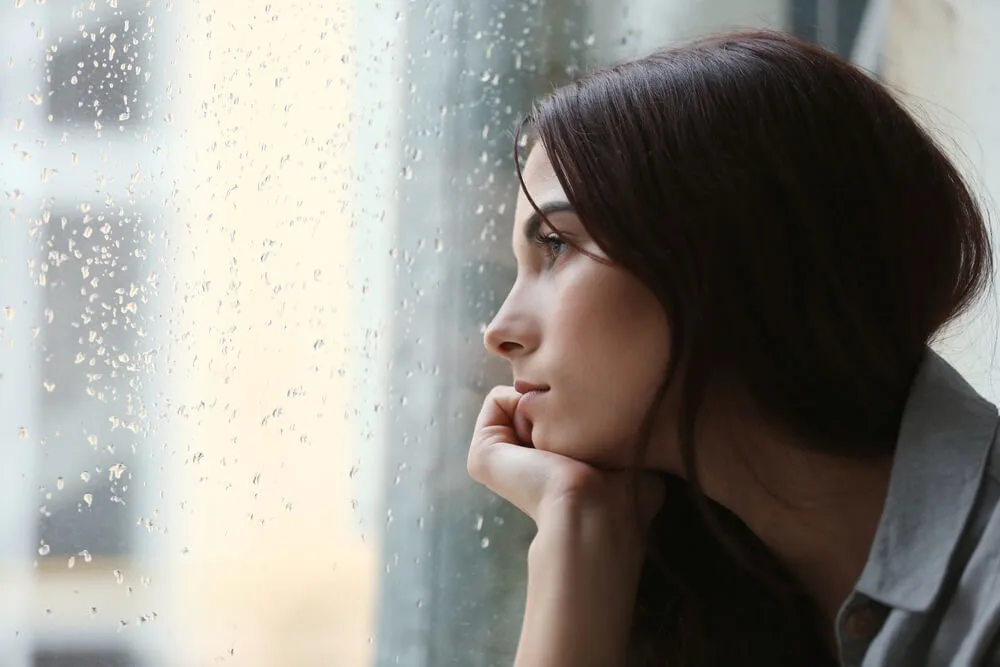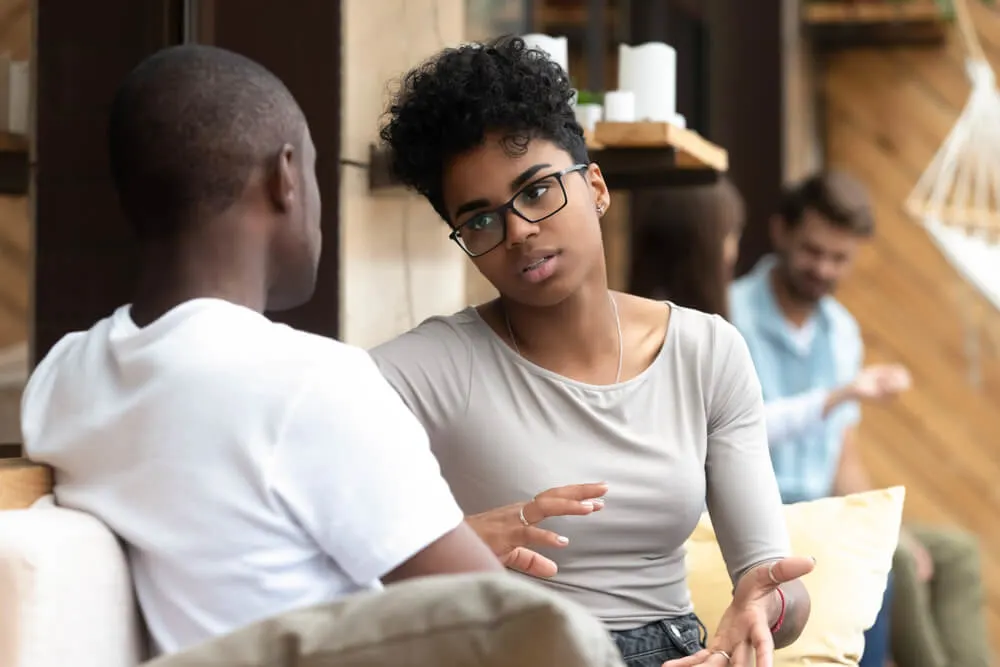A large number of fine muscles in our faces help us to communicate and convey a message about how we feel every day.
However, the muscular structure of our face and body does not only reflect what we feel. Nor does it reflect only what we feel at the moment.

This article is for you if you often wonder why everyone says you look sad.
Sometimes our face is not our ally in communication but tells our body’s story and not our current experience.
Sometimes age and genetics are not in our favor, so very simple, basic mechanisms make us look sad even though we don’t feel that way.
There are many different reasons why our faces can look sad. If you constantly look different than how you want or feel, it can become tiring to explain yourself to others constantly.
Let’s see the possible causes of a sad facial expression and what you can do about them.
Your Face Gives Off Your Emotional Map

Growing up, we get a lot of messages about who we are and how we should look, which feelings are good and which are bad.
Each family has its own emotional map – unique rules about which feelings are acceptable, which are not, which should be hidden, which are shown, and how they are displayed.
These rules are rarely transparent. It is primarily about the style of upbringing. As the family is the whole world for a child, he will learn everything he knows about feelings in the family.
If you are often told that you look sad and you don’t feel that way, first think about how sadness was treated in your family.
Did you feel you can always turn to a family member for comfort and support when you are sad?
Have you ever felt that you shouldn’t be sad and have to hide that feeling at all costs?
Have you believed that sadness is a sign of weakness and that you should mask it with some other feeling?
Did you feel like you could cry, or was crying not an option?
Did your family members allow themselves to be sad?
Have you ever seen a family member cry or otherwise grieve?
Think about these questions. It’s a good idea to write down the answers on paper, leave them, then come back and read them after some time. That way, you will get an insight into your emotional map.
If sadness in your family was treated as an okay feeling, you can express and share, your face probably won’t work against you and make you look sad even when you’re not sad.
If grief was a forbidden feeling in your family, a feeling that had to be hidden and was unacceptable, you probably developed a mechanism for handling sadness and grief. You have learned to suppress it or hide it in other ways.
You may also have learned to ignore sadness to the extent that you don’t even recognize this feeling but name it as fatigue or as anger or in some other way.
However, your face knows everything you hide from it, and as long as the conscious part of you is not in tune with your feelings, chances are good that your face will tell its own story.
Blame It on Your Genes
Sometimes we actually have a fairly healthy emotional map, but the genetic factor and time are not in our favor.
Certain facial features can significantly enhance a sad face. In this case, simple cosmetic treatments or makeup can help a lot.
Facial Features That Give Your Face a Sad Expression:
- Straight eyebrows that are curved downward at the ends
- A drooping outer corner of the eye
- Half-closed lid position
- Nasolabial wrinkles
- The outer edges of the lips are curved downwards
Using bright, radiant colors of makeup can give a completely different tone to your expression.
Experiment with colors and find the ones that look good on you and match your feelings.
If you are unfamiliar with cosmetic treatments, modern cosmetics offer a huge number of non-invasive treatments with which you can improve facial skin tone, reduce wrinkles and thus give your face a brighter expression.
What to Say When Someone Says You Look Sad?

When someone tells you that you look sad, first of all, think about what that person’s intentions are. If it is a wasp that is well-intentioned towards you, the solution is straightforward.
Just say how you really feel, and the conversation will continue in the desired direction. If you are told such things by people who don’t know you very well, you can get angry at yourself and thus change the tone of the conversation.
You can say something like, “I always look sad but rarely feel so – thank my genes for that superpower.”
As soon as you introduce a dose of humor, people immediately stop perceiving you as a sad person.
Never be defensive, regardless of your answer or reaction, since this will make the situation worse.
An optimistic outlook always helps and demonstrates to the other person that you have control over your emotions.
However, sometimes statements such as “You look sad” can be manipulation strategies.
It could be another person’s attempt to get you to explain yourself and prove yourself to them and thus lose sight of some other more important things.
The fact is that some individuals just say whatever comes to mind without truly considering how the other person might respond or whether their words would offend them.
It’s just the way they act, and while it could be incredibly frustrating in some circumstances, we just have to accept it and understand that it’s a part of their nature.
On the plus side, they can be more honest than an ordinary person and are typically easier to associate with.
Therefore, remember that when someone comments that you seem sad, melancholy, or whatever else, they may be only trying to break the ice, start the conversation or be funny.
They may be rude, but they don’t mean to be; they don’t do it on purpose.
Why Do I Look Sad in Photos?
If you always look sad in photos, but in nature, this is not the case. You should ask yourself how good you feel in your own skin.
If you don’t have a high opinion of your appearance and consider photography as torture, it will likely show in the pictures.
The work on accepting the way you look is not something that can be completed with a few short tips.
But what you can immediately apply is to find poses in which you like yourself, practice them in front of the mirror, and then remind yourself to pose that way when you need to take a photo.
When you see that you can look good in photographs, your attitude towards photography will also change.
If you like the way you look, but for some inexplicable reason, you always look sad in photos, you probably just don’t know how to pose.
Not all of us are photogenic, nor do we all know supermodel tricks.
Some simple tricks, like raising the eyebrows, turning the face in half profile, and similar, can dramatically change the impression of the photo.
In this case, too, it is a good idea to explore the poses in front of the mirror and find the ones you like.
Maybe You Just Look Different
When you spend time with extroverted, lively people and you are by nature different – calmer, more measured, quieter, people around you may conclude that you are sad, even though this has no basis in reality.
Just as every family has its own emotional map, every other community, over time, inadvertently imposes some standards of behavior that its members experience as completely normal.
People also often project their own feelings onto the people around them because it is easier for them to deal with them.
When they are happy, other people look happy to them. When they are sad, other people seem sad to them.
It is very easy to project feelings on people who do not have strong facial expressions, and you should also keep that in mind.
Of course, the most important thing is how you feel. It is also important to accurately communicate your feelings and attitudes to leave as little room as possible for guesses and misinterpretations.
Final Thoughts
If everyone tells you that you look sad and you don’t feel that way, it’s time to ask yourself how you really feel.
Maybe there is something that you don’t want to admit to yourself, and that is secretly stealing your energy and joy.
If you are sure you feel good, let’s be honest – is it that important that you seem sad to others?
If you look sad just because of your natural facial structure, people will understand after just a few words that you’re not sad at all, and they’ll stop seeing you that way.
